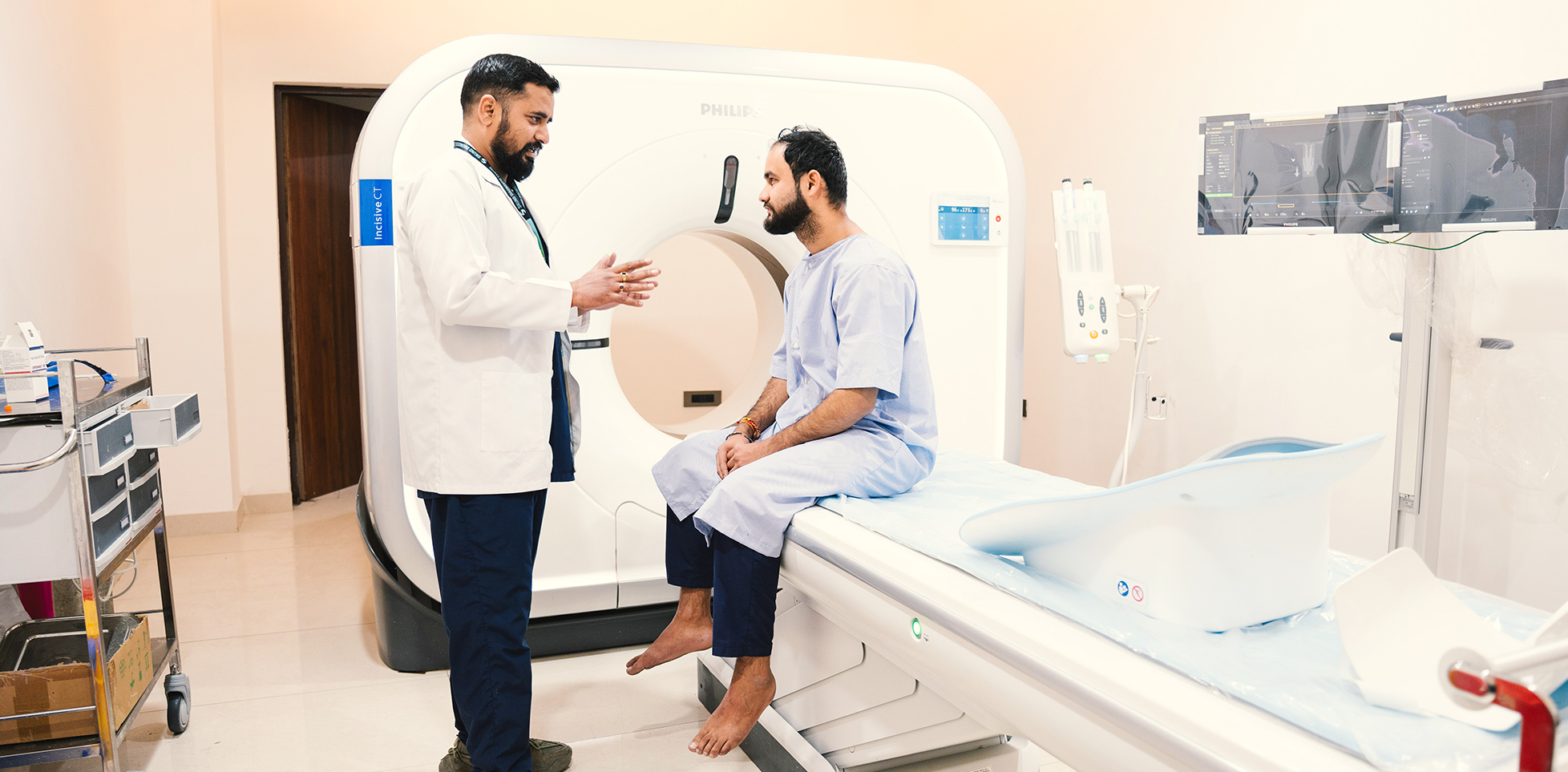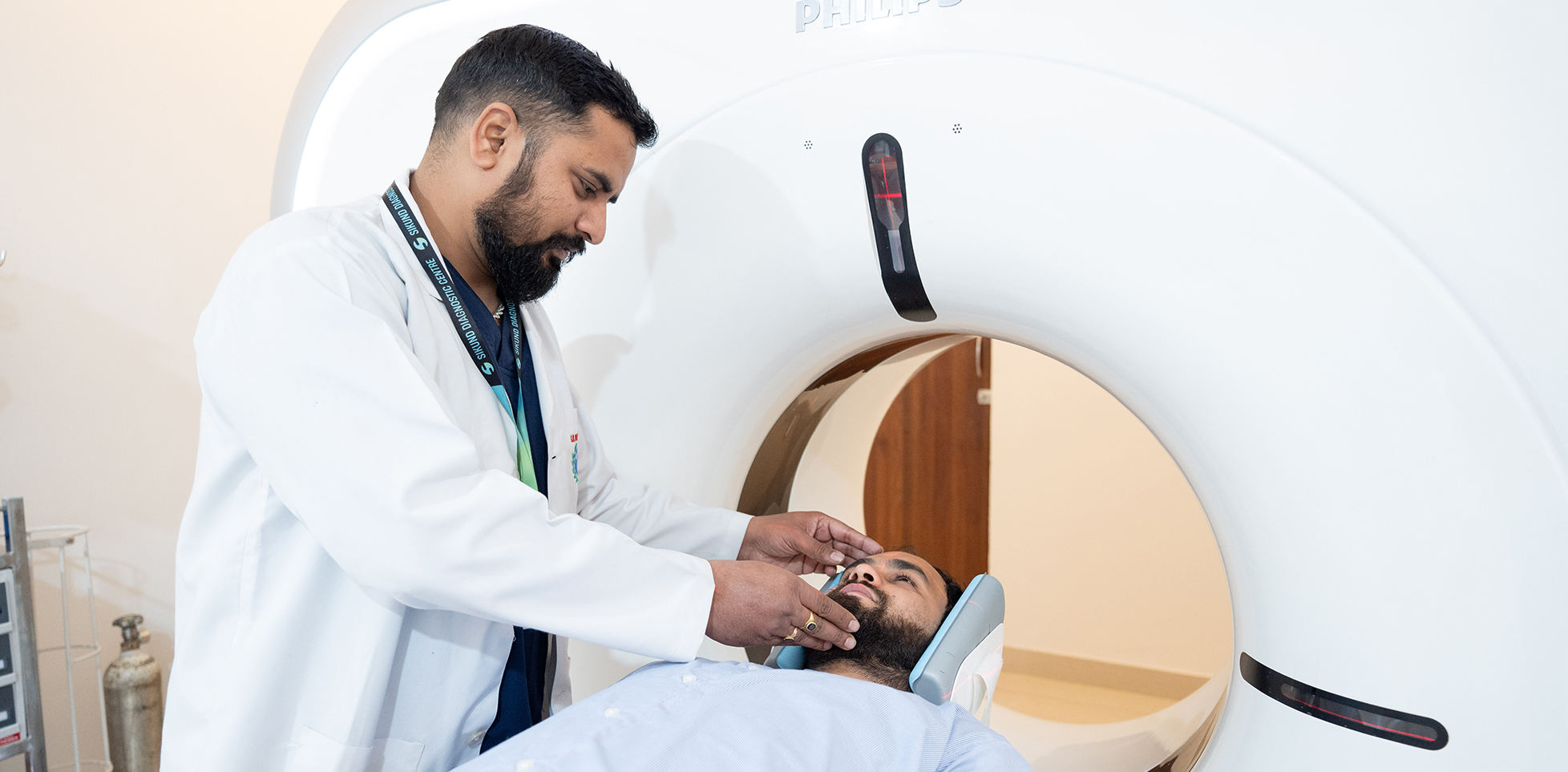CT Scan Safety for Patients with Implants

“Umm… I’ve got a metal implant in my leg. Can I still get a CT scan safely?”
“Ahh… I had a stent placed after my heart procedure. Will that be a problem?”
“Okay, but… is it safe to scan someone who has screws or a pacemaker?”
Totally, we hear those questions all the time.
At Sikund Diagnostic Centre, we totally get that the thought of mixing advanced tech like CT scanning with implants in your body can feel a bit… well, intimidating. But don’t worry, with the right info, the right tech, and the right crew, the whole process is not just safe but super effective too.
How about we chat about it together? Just a chill chat while sipping some tea. Keep it simple. Just the facts, but with a little bit of heart.
Hey there! So, you’re curious about CT scans, huh? Let’s break it down together!
Table of Content:
- Introducing Our Superstar – The 128-Slice Philips Incisive Pro CT Scanner
- CT Scan Safety with Implants
- How Do We Ensure Safety?
- What happens if you have a pacemaker?
- What are the perks of getting your CT at Sikund?
Alright, before we dive into the safety stuff, let’s quickly check out what a CT scan really is.
CT, or Computed Tomography, which some people call CAT scanning, is a cool diagnostic tool that makes super detailed cross-sectional images of the body using X-rays and computer processing. Picture yourself cutting into a loaf of bread and checking out each slice one by one. A CT scanner shows doctors a detailed, layered look at your organs, bones, and tissues.
At Sikund Diagnostic Centre, we like to say: Clarity Beyond Limits – Unleashing The Power of Incisive CT.
Sounds pretty cool! Absolutely, it is! And it can really be a lifesaver in so many situations.

Introducing Our Superstar – The 128-Slice Philips Incisive Pro CT Scanner
Now here’s where it gets exciting. We are proud to use the 128-Slice Philips Incisive Pro CT Scanner. This isn’t just another machine. It’s like the Ferrari of diagnostic imaging.
Key Features You Should Know:
- High-Resolution Imaging: Captures intricate details to ensure nothing is missed. Whether it’s a hairline fracture or a vascular anomaly, this machine sees it all.
- Rapid Scan Times: You’re in and out in minutes. No long waiting, no uncomfortable positioning.
- Low Radiation Dose: Yes, we use advanced dose management to keep your exposure as low as medically possible without compromising image clarity.
Now, if you’re thinking, “Hmm… sounds impressive, but what if I’ve got an implant?” let’s get to that part.
CT Scan Safety with Implants
Here comes the big question: Is it safe to get a CT scan if I have a medical implant?
The answer is: Absolutely, yes. With a few important considerations.
What Types of Implants Are We Talking About?
You’d be surprised how many patients today have some form of implant:
- Orthopedic Implants (rods, screws, plates)
- Cardiac Devices (stents, pacemakers)
- Dental Implants
- Cochlear Implants
- Joint Replacements (hip, knee)
- Surgical Clips
- Intrauterine Devices (IUDs)
- Vascular Filters or Ports
Each type has its own material composition, positioning, and sensitivity to X-rays. That’s why we always ask about your full medical history before scheduling your scan.

How Do We Ensure Safety?
Oh, I get it… you’re curious about what we do to keep you safe. Awesome question!
1. Pre-Scan Check
We’re here to chat with you (not actually on the scanner!) and dive into all the details about your implant. We might ask for some documents or past scan reports if we need them. This is super helpful for us to get your CT protocol just right.
2. Custom Imaging Settings
With our Philips Incisive Pro, we can tweak our scanning techniques depending on whether there’s metal or any foreign stuff around. This helps to cut down on image distortion and makes things safer.
3. Metal Artifact Reduction (MAR)
Oh, totally! This is the awesome feature. MAR, or Metal Artifact Reduction, helps to reduce those pesky streaks or shadows that metallic implants can create in the final scan images. So, that means you’ll get clearer visuals and more accurate diagnoses, even when there are implants involved.
4. Low-Dose Radiation Techniques
We always say: Safety comes first. The scanner’s clever algorithms help us reduce your radiation exposure a lot while still keeping the clarity you need.
What happens if you have a pacemaker?
Yeah, pacemakers definitely give people a moment to think. Just to clear things up: CT scans don’t use magnetic fields, unlike MRIs. So, it looks like CT scans are usually safe for folks with pacemakers, as long as the right precautions are followed.
We’re here to work with your cardiologist if needed and make sure we follow all the right steps to keep you safe during the scan.
Hey, have you thought about why Sikund Diagnostic Centre might be a good choice?
Let’s just say, when it comes to blending tech with a personal touch, we’ve really got it down.
1. Cutting-Edge Tech
We’ve got the 128-slice Philips Incisive Pro CT Scanner and the latest radiology software, all because we believe you deserve the best without having to compromise.
2. Care Focused on the Patient
We’re not just scanning you. We chat with you, help you feel at ease, walk you through each step, and make sure you feel calm and supported. No matter if you’re 7 or 77, we tailor our approach to fit what you need.
3. Skilled Radiologists
Our awesome team of skilled radiologists takes the time to carefully and precisely interpret every scan. Getting the right diagnosis starts with understanding things correctly, and that’s what we’re really good at.

What are the perks of getting your CT at Sikund?
Absolutely, we’re ready to say it… We really think it’s important to go that extra mile.
Cozy and Easygoing
The scan goes by pretty fast. Super quick. Most procedures are pretty quick, usually under 10 minutes. That means you’ll spend less time in the machine and get to enjoy more of your day.
Always prioritize safety!
Minimal radiation exposure. Hey, have you thought about custom protocols? Hey, have you heard about MAR technology? It really comes together for a safer experience, even for those with implants.
Getting the right diagnosis
When you have clarity, you naturally feel more confident. Confidence is all about getting treatment that really hits the mark and works well.



